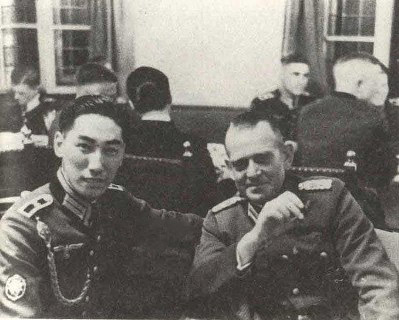
German pilots were secretly trained during the interwar years in Lipetsk, Soviet Union.
As the Treaty of Versailles prohibited Germany from operating an air force, alternative methods were carried on to train and develop the future Luftwaffe. One of these methods was founding Kampffliegerschule Lipezk in the Soviet Union.
Although the clause on building and operating civilian aircraft was dropped in 1922, the clause prohibiting operating and producing military aircraft in Germany remained. As the events of the Occupation of the Ruhr took place, as an objection to the Belgian and French occupation troops, Germany ordered 100 Fokker aircraft from the Netherlands.
While the Occupation of Ruhr ended in 1924, Germany - didn't want to further violate the Versailles Treaty - was facing a problem, how to utilize the new aircraft. Surprisingly, the Soviet Union approached and showed interest, allowing Germans to develop aircraft and train pilots in the country. So, these two countries, both outcasts in the world community during then ended up signing a special agreement as the Soviet Union allowed German aircraft development and German pilot training in secrecy in the Soviet Union.
The closure of the German Lipetsk fighter-pilot school happened in the early 1930's as the political atmosphere changed, as well, the ideological differences between fascism and communism were too wide.
My questions here are:
- How this agreement benefited the Soviets, why they were so willing to provide an air-base on their own soil for German usage?
- How "secret" this event actually was? Didn't the Allies really have any clue about this program?
- If the Allies really didn't know about this, what did they think, when they found out that they couldn't supervise the rules set by their own?
- If the Allies already knew this, why didn't they set retaliatory measures, sanctions, etc.?


